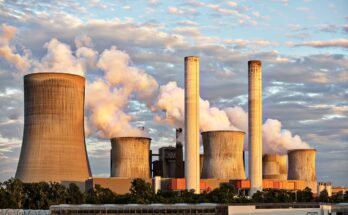Environmental science is a broad field that incorporates aspects of other sciences to understand the interactions within the environment. It combines foundational aspects of numerous scientific disciplines including biology, chemistry, physics, and earth science to help comprehend our natural world and the ways human activities affect it. The significance of environmental science is more crucial than ever, given increasing fears of climate change, pollution, habitat destruction, and the loss of biodiversity.
What is the scope of Environmental Science?
More than simply the study of natural resources and ecosystems that exist in the field, environmental science extends to the effects of human activities on air, water and soil quality. The focus of this field is to learn how natural processes function, how human actions disrupt these processes, and how to create sustainable practices to limit these impacts. Environmental Science DomainsEnvironmental science is a broad field that has many domains, including:
- Botany: The study of plants and their structure, growth, and diseases. Ecologists study how species interact — with one another, and with their environments — and how changes to environments affect these interactions.
- Environmental Chemistry: This subfield of chemistry studies the chemical processes that occur in the environment, including nutrient and pollutant cycles. It also looks at how contaminants are transmitted through air, water and soil, and how pollution can be prevented or cleaned up.
- Climate Change: (What Makes the World Green?) Climate scientists also focus on what”s to come climate-wise, including those adaption and mitigation strategies.
- X Conservation Biology: Save biodiversity from getting extinct. Conservation biologists study ecosystems, species populations and threats to biodiversity, and develop strategies to conserve species at risk as well as their habitats.
- Environmental Policy and Management: This field focuses on the development and implementation of laws, regulations, and management practices to protect the environment. In this field, environmental scientists help to create policies to combat pollution, conserve resources and promote sustainability, and work to enforce those measures.
- Sustainable Development: The principle of sustainable development is important in environmental science and is defined as the type of development which must satisfy the goals needs of this generation without endangering the needs of future generations. It is the judicious use of resources, energy conservation, and the minimization of environmental degradation.
What Environmental Scientists Do
Environmental Scientists: How They Contribute to the Modern-Day Problems They are employed by government agencies, research institutions, non-governmental organizations, and private companies and work in the following ways:
- Research to evaluate and monitor environmental conditions and trends
- Plan for resource management and ecosystem conservation.
- Guide policymakers in understanding environmental challenges and assist in the development of sound environmental policy.
- Promote sustainable practices and raise awareness of environmental issues in communities and businesses
- Develop solutions for cleaning up polluted areas (such as contaminated water sources or toxic waste sites).
What is environmental science, trend to help solve this global issue
Environmental science has a vital role to play as the world grapples with unprecedented challenges in that realm. Climate change in particular affects ecosystems, human health, agriculture and economies writ large. Deforestation and habitat loss threaten biodiversity, pollution continues to destroy both natural and artificial environments. Environmental scientists are helping to create solutions for both problems and solutions to those problems.
By way of example, researchers are looking into renewable energy sources (solar and wind power for instance) that can decrease our dependence on fossil fuels New technologies are also being put to the test for carbon capture and storage to cut down on greenhouse gas emission. Furthermore, scientists are developing new agricultural practices aimed at maximizing food yield while minimizing environmental impact, ensuring that a growing global population can be sustained.
The Future of Environmental Science
We have just begun entering the new century 21st century, but environmental science will continue to grow and adapt as new challenges present. New technologies and improvements in data analysis are giving scientists new ways to understand the workings of these complex environmental systems, and to predict how they will change in the future. Artificial Intelligence and the Earth: How Emerging Technologies Are Reshaping the Way We Monitor Environmental Conditions
Additionally, with the world becoming more interconnected, we need to work together to solve global environmental problems. They must be engaged together in creating a sustainable world for the planet.
Environmental science is a crucial field that allows us to grasp the complex connections between individuals and their surroundings. It equips us with the insights and skills needed to tackle the environmental issues we encounter in our world today and to build a healthier and more sustainable future for future generations. Studies, legislation or activism: environmental scientists are instrumental in the conservation of our planet and her resources.



